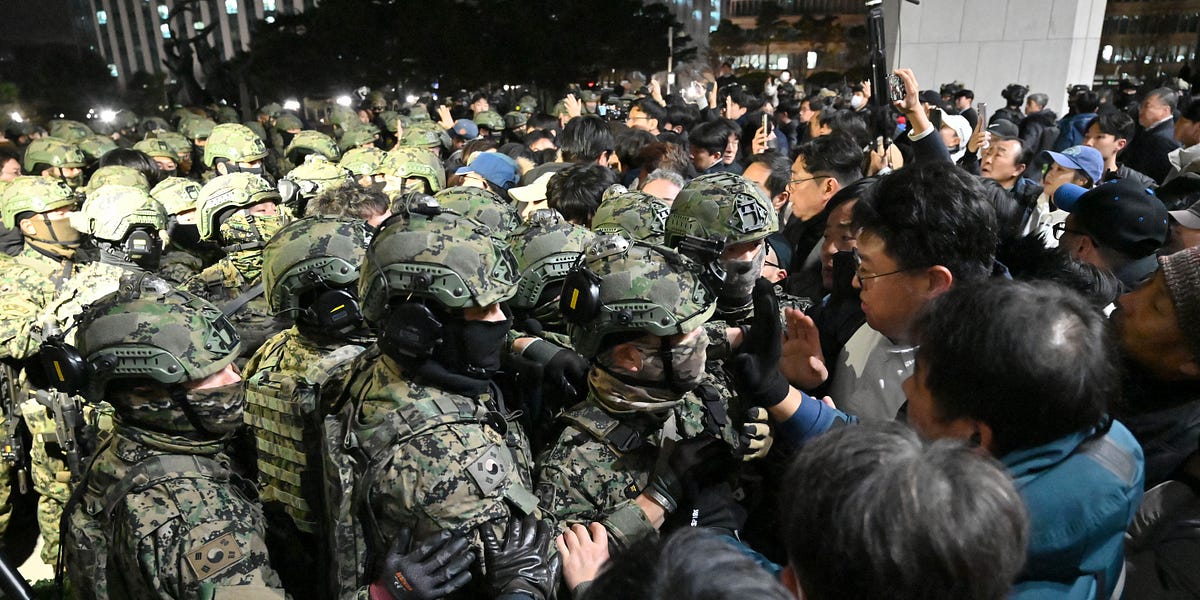In a shocking turn of events, South Koreans went to bed Monday night to the news that their unpopular president, Yoon Suk Yeol, had declared martial law over the country, only to awake on Tuesday to discover that the National Assembly—backed by crowds of citizens gathering in protest—had overruled Yoon and restored their hard-won democratic system.
By Wednesday, an uneasy calm had settled over Seoul. Yoon, who has been praised as a diplomatic wonder and staunch ally by President Joe Biden and Secretary of State Antony Blinken, appeared to be on his way out. All of Yoon’s senior aides, including his chief of staff, have resigned their posts even though the president had accepted the parliamentary demands and lifted his martial law order. Opposition parties in South Korea led by the left-liberal Democratic Party (DP) are now seeking to impeach Yoon over his actions, with the first votes scheduled for Thursday.
Yet even as the coup unravelled in full public view, the close ties between the Pentagon and Yoon’s military could present a dilemma for Biden and the next Trump administration. The United States stations 28,500 troops in South Korea and a U.S. general holds operational control over the Korean Army and the U.S.-South Korean Combined Forces Command during times of war. That has led to serious strains in the bilateral alliance over the years.


